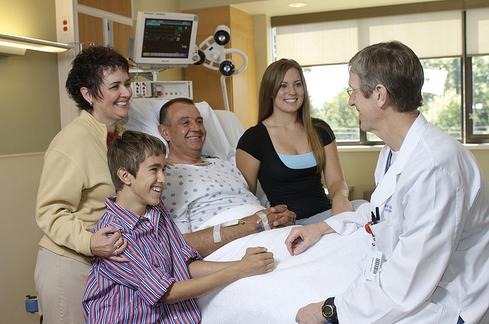Healthcare Nonprofit Learns Patient Engagement Game
When it suddenly had to compete for Medicare patients, Community Health Plan of Washington turned on the technology.


Engage Patients: 16 Creative Healthcare Strategies
Engage Patients: 16 Creative Healthcare Strategies (Click image for larger view and slideshow.)
Until 2011, all Washington state Medicaid patients went to Community Health Plan of Washington for treatment. But when other providers began accepting Medicaid insurance, Community Health, for the first time in its 20-plus-year history, had to differentiate its services, build a brand, and market its clinics to prospective Medicaid clients.
The nonprofit organization consists of 21 community health associations, each of which operates several clinics ranging from small buildings to large, multisite complexes. One is in a converted house. Another operates 56 clinics along the Washington seaboard.
Community Health accepts any patient, Dennis Cannelis, senior executive consultant for the organization, told us. It has about 800,000 patients; Medicaid covers 250,000, and the remainder typically are uninsured, underinsured, or poor.
[Heal thyself. Read Healthcare's Bad Customer Service: 3 IT Cures.]
Primarily funded by Medicare, Medicaid, and government subsidies, Community Health sought technology to help it meet new value-based payment rules, reduce costs, and improve patient health and outcomes.
"We developed a data warehouse so we could create a better view of claims data and clinical data. We have these analytics, but now we needed a way to outreach and touch the members," Cannelis said. "How do we engage them to drive them to the clinic?"
Once it began thinking of patients as consumers, Community Health recognized it had to provide them with a user friendly, valuable way to connect. The organization wanted to build relationships with its entire community, find potentially unhealthy patients based on analytics and lifestyle, and help at-risk patients become healthier.
After exploring various portals and programs, Community Health selected Welltok's CafeWell, a health optimization platform that works on desktops, smartphones, kiosks, and tablets. CafeWell rewards members for doing healthy activities such as exercising or eating well, joining conversations, or reading educational materials. It also partners with companies such as FitBit and Jawbone, and its rewards program is customizable.
"The whole idea is that, when people carry out activities, we link them to rewards," Jeff Margolis, chairman and CEO of Welltok, said in an interview. "Those rewards impact the cost of their healthcare -- everything from gift cards and quantifiable rewards that are small, to reductions in insurance premium or waiver of copayments or reduction of deductibles."
Cannelis said Community Health is piloting a reward using CafeWell partner Wholesome Wave, a nonprofit organization that provides nutritious food to underserved communities. The organization purchased CafeWell late in 2013 but didn't promote it until recently because the project lacked an internal sponsor, he said. Initially purchased for medical management, Community Health's marketing department later brought CafeWell to top executives after recognizing its potential.
"It really needs the buy-in from an executive leadership perspective," Cannelis said.
Even with its soft debut, about 2,000 patients enrolled, he said. Now Community Health is promoting the site to clinicians and directly text messaging patients about the tool. It expects about 20,000 patients to use CafeWell within the next few months.
Members like the service and use it to learn about health-related topics and communicate with other patients, he said. Based on its data warehouse analytics, Community Health determined that 50% of its members are younger than 18, and 60% own smartphones, so many rely exclusively on the CafeWell app.
"We were finding they're all getting on CafeWell and they like the sponsored community. They want to start communicating on specific topics. A lot of them are getting in just to talk about their health," he said.
In the future, Community Health will consider adding other CafeWell partners, such as Wildflower, which helps pregnant women connect with their primary care physicians or obstetricians.
Margolis said it also wants to learn more about Welltok's recently signed partnership with IBM Watson -- the first investment out of IBM's Watson innovation fund. The mobile CafeWell Concierge service should be available late this year. Concierge interacts with patients via voice, answering their questions and learning as it gets more data and experience. The technology enables both public and private networks to ensure sensitive data remains secure and HIPAA compliant.
"You can form a private social network that includes your physician or your physician staff, and in those, you could include your real name," Margolis said. "We're actually embarking on a pilot with a large health system in Denver that wants to use this platform, including the Watson component, for before people come in for heart surgeries and [to keep] in touch with them after they're discharged."
Download Healthcare IT In The Obamacare Era, the InformationWeek Healthcare digital issue on changes driven by regulation. Modern technology created the opportunity to restructure the healthcare industry around accountable care organizations, but ACOs also put new demands on IT.
About the Author
You May Also Like






